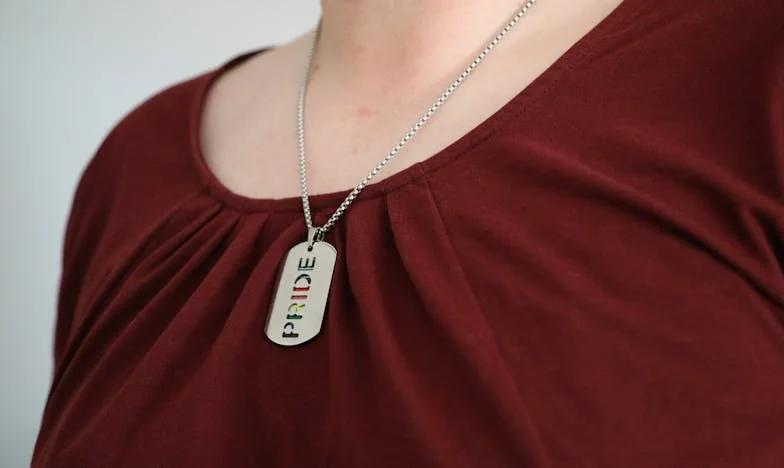A Chilly Welcome: How My Dream of a Family Gathering Shattered in Silence
“Are you sure they even want us to come, Eric?” I asked, my voice small as we pulled into the Johnsons’ driveway, the spring sky heavy with clouds. My husband gripped the steering wheel tighter, his knuckles pale. “It’ll be fine, Sarah. Mom’s probably just stressed. They’re always happy to see us.”
But as I stepped out, clutching the casserole dish I’d made—chicken and broccoli, my mother-in-law’s favorite—something in the stillness made me ache. The porch light flickered. The house, usually glowing with warmth in my fantasies, seemed more fortress than home.
Eric rang the bell. I heard chairs scraping inside, a muffled voice—then the door opened. There stood Linda, my mother-in-law, in her pale pink cardigan, arms folded. She looked past me. “You’re late.”
Eric laughed, trying to lighten the mood. “Only by ten minutes, Mom! Traffic was a mess on I-95.”
She didn’t smile. “Dinner’s getting cold. Come in.”
I followed them inside, the air thick with the scent of roast beef and something else—resentment, maybe. Eric’s dad, Jerry, nodded from his recliner, eyes glued to the baseball game. “Hey,” he grunted. No hug, no handshake.
I set the casserole on the counter. Linda eyed it. “I made enough food,” she said flatly. I swallowed, forcing a smile. “I thought it’d be nice—”
She cut me off. “We don’t need it.”
We sat at the table. I tried to join their conversation—something about Jerry’s new lawnmower, Linda’s church committee—but every attempt to share a story or ask a question fizzled. My words landed like pebbles in a well, unnoticed. Eric kept glancing at me with apologetic eyes, but said nothing.
When I asked Linda if she needed help in the kitchen, she shook her head. “We have a way of doing things here.”
I watched their laughter, their inside jokes, the comfortable rhythm they shared. I felt like an intruder in my own life. My hands fidgeted in my lap. I tried to recall the hopeful picture I’d carried for weeks: all of us around the table, laughing, feeling like family.
After dinner, I stood to clear the plates. Linda waved me off. “We’re good.”
Eric tried to bridge the silence. “Mom, Sarah’s planning a barbecue for Memorial Day. You guys should come.”
Linda’s lips pinched. “We’ll see. We’re busy people.”
The words stung. I looked at Eric, searching for some sign that he’d stand up for me. He reached for my hand under the table, squeezed it, but said nothing more.
That night, driving home, I watched the world blur past. “Did I do something wrong?” I whispered.
Eric sighed. “They’re just… set in their ways. It’s not you.”
But I couldn’t shake the chill that had settled in my heart. I thought of my own parents, the chaos and warmth of growing up in a house where everyone was welcome, where my mom would pull you into a hug before you even had your coat off. I’d wanted that for us—for our future kids, for myself. I wanted so badly to belong.
Over the next months, I kept trying. I invited them over, sent birthday cards, baked pies. Each gesture was met with polite indifference. At Thanksgiving, Linda rearranged my place cards, putting me at the far end of the table. At Christmas, my gifts sat unopened until after we’d left. Jerry barely spoke to me unless it was about the weather.
Eric grew tense, caught between loyalty to me and the cold reality of his family’s distance. One night, as we lay in bed, I broke. “Why don’t they like me?”
He turned away, voice thick. “I don’t know, Sarah. They’re just like this. They never really wanted anyone new.”
I lay awake, staring at the ceiling, wondering if I’d ever be enough.
The first time I stood up for myself was at Linda’s birthday. As she opened gifts, she barely glanced at the scarf I’d knitted her. “Thank you,” she said, folding it neatly back into the box.
I mustered my courage. “Linda, have I done something to upset you?”
She looked startled, then cold. “You’re Eric’s wife. That’s enough, isn’t it?”
I felt the room tilt. “I’d like to be more than that. I’d like to feel like family.”
She didn’t answer. Jerry coughed into his napkin. Eric stared at the table, jaw clenched.
After that, I stopped trying so hard. I let the invitations lapse. I spent more Sundays with my own parents, with friends who laughed easily and hugged me tight. Eric drifted, caught in the middle, until one night he broke down. “I wish they could see how amazing you are. I wish they knew how much this hurts you.”
All I could do was hold him, both of us grieving the family we’d never have.
Now, years later, I still wonder what makes some families open their doors and others keep them shut. I still ache for what could have been—a warm welcome, a seat at the table, a mother-in-law who saw me as more than an outsider. But I’ve learned to build my own circle, to find love in the spaces I create. I hold on to hope that, someday, things might change.
Tell me—have you ever felt like a stranger at your own family table? What would you do if love wasn’t enough to break through the silence?
